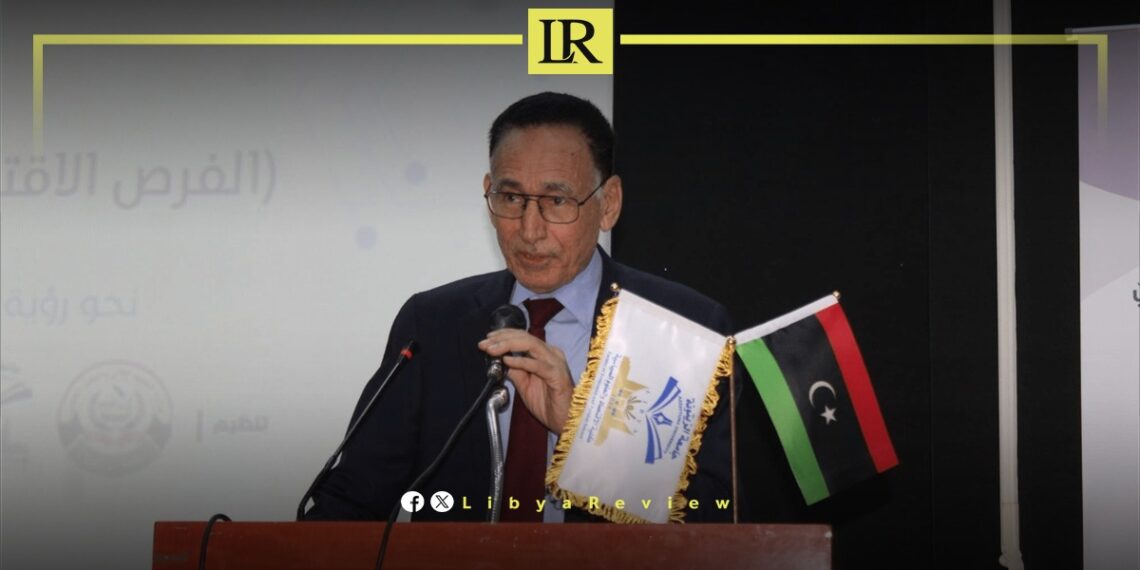Libya’s Minister of Economy and Trade in the Government of National Unity (GNU), Mohamed Al-Hwaij, has highlighted the country’s potential to export one million tonnes of cement, provided the industry receives adequate attention.
Speaking at the Economic Diversification Conference, al-Hwej emphasised the need for legislative reforms to attract foreign investments and called for a clear economic and development plan.
Al-Hwaij stressed that Libya’s GDP could increase from 60 to 250 billion dinars with political and security stability. He urged a shift away from reliance on a single export commodity—oil—and towards economic diversification.
In a separate development, Al-Hwaij discussed enhancing economic cooperation with leading Chinese companies in trade and investment. The meeting included Mohamed al-Raied, Chairman of the General Union of Chambers of Commerce, Industry, and Agriculture, and Rashid Swann, Chairman of the Business Owners Council. They reviewed plans to boost investment and trade ties through joint agreements with China.
Chinese companies expressed their readiness to participate in infrastructure development, reconstruction projects, and the industrial sector in Libya. They aim to capitalise on investment opportunities between the two nations, as reported by the Ministry of Economy and Trade.
Earlier, Al-Hwaij also addressed the challenges facing the export of Libyan products to European markets. The Minister’s discussions underline Libya’s focus on diversifying its economy and strengthening international trade relationships.
Beijing and Tripoli are rebuilding ties after China withdrew its investors in 2011. However, Libya’s political division could pose challenges, according to a report published today by the English-language South China Morning Post in Hong Kong.
Before the 2011 revolution that ousted late lone-time leader Muammar Gaddafi and led to a bloody civil war in Libya, China had extensive interests in the oil-rich North African state. At that time, 75 Chinese companies controlled 50 major projects with a contractual value exceeding $20 billion, according to the Chinese Ministry of Commerce.
Intensive Chinese investments, including oil, construction, railways, and telecommunications, abruptly halted after some companies were raided and dozens of workers were seriously injured. This prompted Beijing to act swiftly to evacuate its citizens from the unrest. During the crisis, 35,860 Chinese nationals were evacuated from the country, marking the largest official evacuation abroad since the founding of the People’s Republic of China in 1949. As the security situation deteriorated, China suspended new investments, a situation that remained relatively unchanged until now.
Currently, Libya is divided between two administrations: the Government of National Unity based in Tripoli in the west, and the rival House of Representatives government-designated government in the east.


